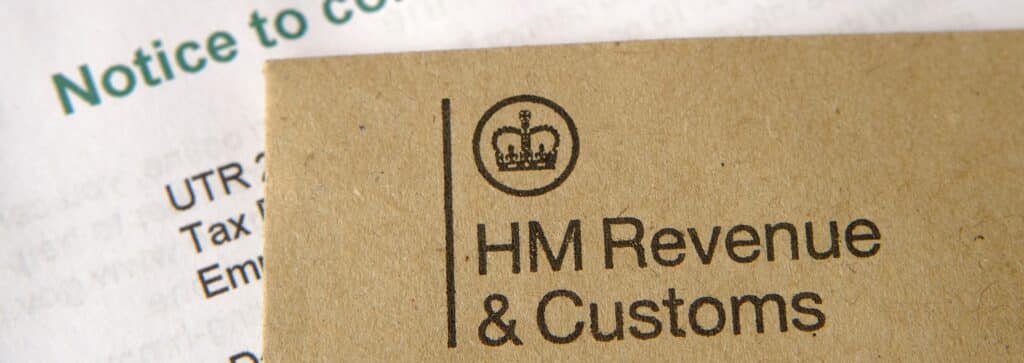The brown envelope arrives on an ordinary Tuesday morning. Your name is clearly printed on the front, and the familiar HMRC logo sits in the corner. Your heart sinks as you recognise the official correspondence – it’s a tax investigation notice.
This scenario is becoming increasingly common. With approximately 2.5% of the 12.1 million Self-Assessment returns filed annually facing investigation, that means over 300,000 UK taxpayers receive investigation notices each year. Yet most people are entirely unprepared for what comes next.
The stakes have never been higher. HMRC delivered £34 billion of compliance yield in 2022-2023, returning around £18 for every £1 spent on compliance activities. This aggressive approach means investigations are not only more frequent but also more thorough than ever before.

The Numbers Don’t Lie: HMRC’s Escalating Focus
The data reveals a clear trend: HMRC is intensifying its compliance activities across all sectors. In 2023-2024, compliance activities generated billions in additional revenue, with investigations recovering substantial amounts from taxpayers who thought their affairs were in order.
Consider these sobering statistics:
- Over 300,000 Self Assessment investigations annually: Based on current investigation rates, if you file Self Assessment returns, you have a 1 in 40 chance of being investigated each year
- £34 billion recovered in 2022-2023: This represents money HMRC believed was owed but not initially paid correctly
- Average professional costs: Tax investigation specialists report that professional fees for handling investigations typically range from £3,000 to £15,000, even for cases where no additional tax is ultimately owed
- 18:1 return ratio: HMRC generates £18 of compliance yield for every £1 it spends on investigations, making this a highly profitable activity they’re unlikely to reduce
The trend is clear: investigations are not decreasing. If anything, HMRC’s sophisticated data analysis capabilities mean they’re becoming more targeted and more likely to identify discrepancies that require explanation.
What Is a Tax Investigation?
A tax investigation, or tax enquiry as HMRC formally calls it, is a detailed examination of your tax affairs. HMRC may question specific entries on your tax return, request additional documentation, or conduct a comprehensive review of your financial records spanning several years.
The critical point many taxpayers miss is this: you don’t need to have done anything wrong to be investigated. HMRC’s compliance strategy has evolved to include extensive random checking programmes alongside targeted investigations.
These investigations aren’t necessarily triggered by wrongdoing. HMRC conducts random checks as part of their compliance programme, and you might be selected simply because your circumstances fit a particular profile they’re examining. Common triggers include:
- Discrepancies in reported income
- Claims for unusually high expenses
- Working in cash-intensive industries
- Random selection for compliance checks
- Anonymous tip-offs or data matching exercises
The Reality of Being Investigated: The Hidden Costs
Many people assume that if they’ve done nothing wrong, they have nothing to worry about. The financial reality tells a different story. Even when investigations conclude with no additional tax owed, the process creates substantial costs that most taxpayers never anticipate.
Time-consuming: The average investigation requires 40-60 hours of the taxpayer’s time over 12-18 months. For business owners, this represents thousands of pounds in lost productive time.
Financially draining: Professional representation costs typically range from £3,000-£15,000, with complex cases reaching £25,000 or more. These costs accrue regardless of whether additional tax is ultimately owed.
Stressful and disruptive: Studies show that 78% of taxpayers under investigation report significant stress affecting their health, relationships, and business performance.
Immediate cash flow impact: HMRC often demands payment of disputed amounts during the investigation process, creating immediate cash flow challenges even when you’re ultimately proven correct.
The harsh reality is that the investigation process itself has become a significant financial burden, separate from any tax that may eventually be due.

Your Rights and HMRC’s Powers
It’s crucial to understand both your rights and HMRC’s extensive powers during an investigation. You have the right to:
- Professional representation throughout the process
- Reasonable time to respond to requests
- Appeal decisions you disagree with
- Expect HMRC to conduct the investigation efficiently
However, HMRC has considerable authority to:
- Request detailed records going back several years
- Interview you under caution
- Visit your business premises
- Impose penalties for non-compliance or late responses
Taking Control: Your Response Strategy
If you receive an investigation notice, your response in the first few weeks is critical. Here’s what you should consider:
Don’t ignore it: Failing to respond or delaying your response will only make matters worse and may result in estimated assessments.
Seek professional help immediately: Tax investigations require specialist knowledge of tax law and HMRC procedures. The cost of professional representation often pays for itself through efficient case management and avoiding costly mistakes.
Gather your records: Start collecting relevant documentation immediately. The sooner you can provide comprehensive information, the quicker the investigation may conclude.
Stay calm and cooperative: While the process is stressful, maintaining a professional relationship with HMRC investigators often leads to better outcomes.
The Value of Preparation
The most effective way to handle a tax investigation is to be prepared before it happens. This means:
- Keeping meticulous records of all financial transactions
- Understanding what protection options are available to you
- Having a relationship with qualified tax professionals
- Considering whether investigation fee coverage might provide valuable peace of mind
Many taxpayers don’t realise that specialist insurance products exist to cover the professional fees associated with tax investigations. These policies can provide access to expert representation without the worry of escalating costs, allowing you to focus on your business while professionals handle the technical aspects of your case.

Moving Forward with Confidence: Time Is of the Essence
A tax investigation doesn’t have to become a financial catastrophe, but preparation cannot wait until you’re under investigation. The decisions you make today about protection and professional relationships will determine how well you navigate any future investigation.
The statistics are unforgiving: with over 300,000 investigations annually and HMRC’s 18:1 success ratio, the question isn’t whether investigations will continue – it’s whether you’ll be prepared when your number comes up.
Taking proactive steps today means:
- Building relationships with qualified tax professionals before you need them
- Understanding what protection options exist in the market
- Ensuring your record-keeping systems can withstand scrutiny
- Having a clear response strategy ready to implement immediately
Remember, HMRC’s investigation capabilities are growing more sophisticated each year. Their data analysis systems are identifying patterns and discrepancies that might never have triggered investigations in the past. The taxpayers who thrive in this environment are those who prepare in advance rather than react under pressure.
The brown envelope might arrive tomorrow, next month, or next year. But with HMRC generating £34 billion annually from compliance activities, it’s not a matter of if investigations will continue – it’s a matter of whether you’ll be ready when it’s your turn.
Contact our experienced tax team today to discuss:
- Your current level of protection against investigation costs
- How to strengthen your record-keeping and compliance procedures
- Whether tax investigation fee protection might be right for your circumstances
- Building a proactive relationship with qualified tax professionals
Book a free consultation now, and follow us on Facebook, Instagram and LinkedIn for updates.
Because when HMRC writes to you tomorrow, you’ll want to know exactly what to do – and have the right people already in your corner.
